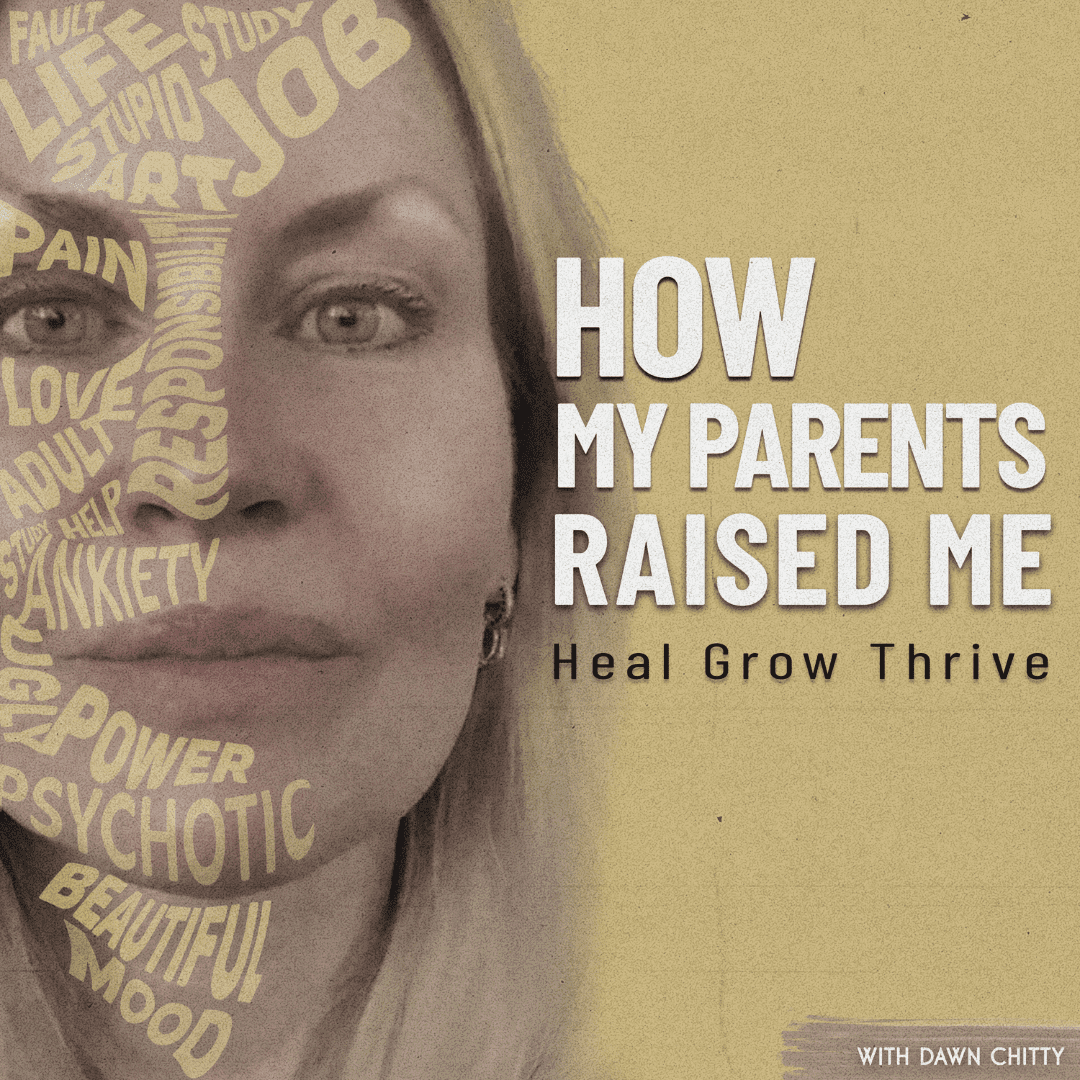One of the best pieces of advice I’ve heard regularly repeated on the How My Parents Raised Me podcast is ‘make sure you have a trauma informed therapist’.
But what does trauma informed mean?
Trauma-informed care is when the trauma you have experienced is taken into account when under the care of your therapist.
The main reason this is important is to prevent re-traumatization. Therapists must be able to identify the symptoms of trauma. They must have empathy for how trauma has negatively impacted the health and well-being of their patients.
It is also highly valuable if your therapist is aware of their own trauma & how those struggles have impacted their own life so that they can identify more easily with their patients.

I know first hand what being re-traumatized looks like and the misguided advice I received from a therapist several years ago probably set me back a couple of years at the time.
What is retraumatization?
Retraumatization is when you relive trauma from the past as a result of a similar incident happening in the present. So for example if you were emotionally abused and never believed as a child and you find yourself in a situation now where you are not believed, you could become retraumatized.
About seventy percent of U.S. adults say they have experienced trauma in their life.
Of those seventy percent of adults, twenty percent reported developing post-traumatic stress disorder (PTSD).
The effects of childhood trauma can last a lifetime. It can lead to anxiety, depression and addiction as well as chronic health issues. Receiving the best, trauma informed care is not a ‘good to have’ it is a ‘must have’.
So what actually causes trauma in the first place?
There are the 10 adverse childhood experiences (ACE’s) that lead to childhood trauma.
- Physical abuse
- Sexual abuse
- Emotional abuse
- Physical neglect
- Emotional neglect
- Family member or caretaker with mental illness
- Family member or caretaker with substance abuse issues
- A child witnessing violence against their mother
- Having a relative sent to jail or prison
- Losing a parent due to separation, divorce, or death

What Is A Trauma Informed Therapist And Why Do I Need One?
So how can I tell if the therapist I am working with is trauma informed?
I have put together the six principles of trauma informed care that are necessary for a therapist to be categorised as trauma informed.
Take a look and decide if your current therapist is trauma informed.
1. Safety is so important when choosing a therapist to work with.
As a traumatised child you didn’t feel safe. Your nervous system would regularly go into fight, flight, freeze or fawn. You may have anxiety or depression and in order to heal you need to be in an environment where you feel physically and emotionally safe during time spent with your therapist. You should not only feel safe with the therapist but the room itself should be calm and relaxing and free of triggers.
2. Trustworthiness and Transparency
Many people never seek help for mental health issues because they lack a sense of trust. Building and maintaining trust between you and your therapist is key to healing. You should feel comfortable in expressing what you need. Communication between you and your therapist should be open and transparent at all times.
3. Collaboration with Trauma Informed Therapist
You work together with your therapist to ensure you receive the care you need. Your therapist should ask what your goals are for treatment and then work with you to form a plan to achieve those goals. You are an active participant in your own therapy. You work as partners to achieve desired outcomes.
4. Empowerment, Voice and Choice
Trauma-informed care promotes an environment where you can heal and grow from trauma. To prevent re-traumatization, your voice should be heard and you should have choices. You shouldn’t feel like therapy is happening to you. You should feel empowered and with a sense of control.
5. A trauma informed therapist will not judge you for the coping mechanisms you developed in order to survive
Your coping mechanisms, such as addictions and other behaviors, have kept you alive and safe so far and that is nothing to be ashamed of. In fact, we should honor those survival skills. Trauma-Informed care aims to heal the underlying issues that caused these coping mechanisms to develop. Healing the trauma can lead to reducing or eliminating the coping behaviors that are causing distress.
6. A trauma-informed therapist will work with you
To develop new coping skills and new ways of relating to your nervous system’s responses to being activated.
7. Diversity in Working with Trauma Informed Therapist
Cultural differences are recognized during trauma informed care and your cultural needs considered. The potential for re-traumatization from a lack of sensitivity to culture, race, gender or any other biases is a major concern. Your autonomy needs to be taken into consideration.

How can you find out if your therapist is trauma informed?
1. Ask questions!
Don’t be afraid to ask a potential therapist what kind of training they have or what their own experiences of trauma have been. It’s imperative you get a real sense of who you will be entrusting with your care.
2. Their language
A therapist that talks about safety, boundaries, and self-care, are more likely to be trauma-informed.
3. Their modality
Trauma-informed therapies include Somatic Experiencing, Internal Family Systems (IFS), Trauma-Focused Cognitive Behavioral Therapy and Eye Movement Desensitization and Reprocessing (EMDR).
I have had several people tell me they’ve been in therapy for 10 years and still feel stuck. Their mental health is not improving.
Seriously… you need to know this. If you are not moving forward and getting results within the first few months of beginning to work with a therapist, move on. It doesn’t mean they are not good at what they do. It simply means they are not good for you.
Everybody needs to find a therapist that resonates and works for them. Finding a trauma informed therapist that is right for you will be a life changing moment in your healing journey.
If you are not quite ready to find a therapist, soak up as much information as you can. Healing is about AWARENESS. You cannot heal sitting inside a bubble. You need to connect with information and stories that will help you solve the pieces of the puzzle that are keeping you stuck. Take a look at 20 Books To Heal From Childhood Trauma and jump onto the How My Parents Raised Me Podcast for many, many stories that are just like yours.










1 thought on “What Is A Trauma Informed Therapist and Why Do I Need One?”
Hi Dawn
I’ve finally got around to looking at your blog!!!
I’ve been meaning to do this for a little while!!
Looks fantastic, like all your work! I’m yet to read all of them, but will get onto it!!
Thanks
Diane